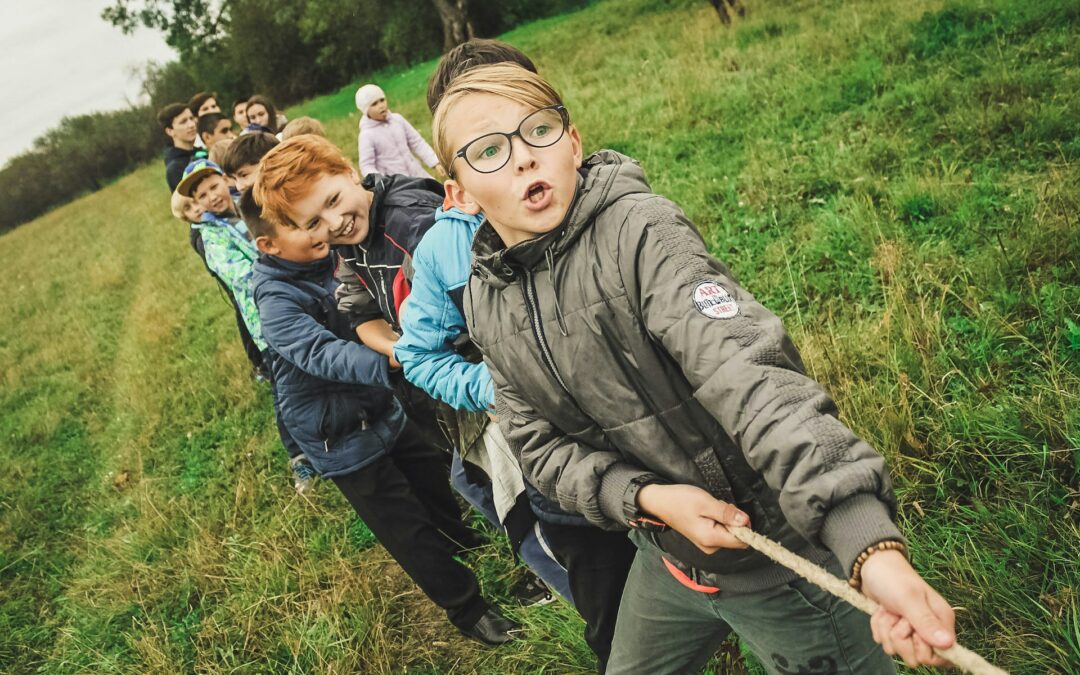Physical education not only serves to improve physical health and motor skills in children but also plays a critical role in their social-emotional development. Sprint Active Education, a market-leading sports and physical education company, understands the importance of enhancing social-emotional learning in children through its range of programmes. By providing well-rounded physical education experiences, we ensure children develop crucial life skills such as self-awareness, collaboration, and resilience.
Social-emotional learning (SEL) is an essential component of a child’s overall development, encompassing the processes through which children acquire, apply, and manage the knowledge, attitude, and skills needed to understand and regulate their emotions, set and achieve goals, develop empathy, maintain positive relationships, and make responsible decisions. Physical education activities, by nature, offer plenty of opportunities for children to practice and refine these social-emotional skills.
Sports and physical activities present children with challenges, successes, and failures, allowing them to confront their emotions and learn from their experiences. Additionally, through teamwork and collaboration, children develop essential communication and problem-solving skills, helping them form positive relationships and cultivate empathy.
This article will delve into the role of physical education in promoting social-emotional learning in children. We will discuss the specific skills and competencies that can be developed through sports and physical activities, along with practical strategies for parents and educators to encourage social-emotional growth in conjunction with physical development. Engage with us as we uncover the vital connection between physical education and social-emotional learning and how it empowers children to lead healthy, fulfilling lives.
Building Self-Awareness through Physical Activities
Physical education offers various opportunities for children to develop self-awareness by confronting their strengths, limitations, and preferences in different physical activities. Children also become more aware and mindful of their bodily sensations and emotions through engaging in sports and exercise. Here are some ways through which physical education contributes to improved self-awareness:
- Encourage self-reflection by asking children to identify their strengths and weaknesses within specific activities and explore their feelings during sports and games.
- Promote goal setting and personal tracking, enabling children to measure their progress and take pride in their achievements.
- Integrate mindfulness practices into physical activities, such as focusing on breathing techniques or body sensations during yoga or stretches.
Fostering Collaboration and Relationship Skills
Team sports and collaborative physical activities provide a natural environment for children to enhance their relationship skills and learn to work together effectively. These essential life skills contribute to their ability to form positive relationships and navigate social environments. Consider the following strategies to foster collaboration through physical education:
- Design group activities and team sports that require cooperation, communication, and joint decision-making.
- Teach children to listen and provide feedback, enabling them to better understand their peers and adapt their behaviours accordingly.
- Incorporate team-building exercises that require trust and support, reinforcing positive relationship skills among children.
Cultivating Resilience and Emotional Regulation
Physical education enables children to encounter challenges, setbacks, and obstacles, requiring them to develop resilience and effective emotional regulation skills to overcome hurdles and maintain composure. By building these mental fortitudes, children will be better prepared to face difficulties both on and off the field. Try implementing these methods to cultivate resilience and emotional regulation through physical education:
- Provide opportunities for children to face challenges and problem-solve, guiding them to overcome obstacles and reflect upon their experiences.
- Encourage children to manage stress and anxiety through relaxation techniques, such as deep breathing and visualization.
- Teach children about sportsmanship, offering them the tools to process their emotions after a loss or setback in sports and other areas of life.
Enhancing Empathy and Compassion
As children engage in physical activities with their peers, they develop empathy and compassion towards others by understanding different perspectives and experiences. This heightened sense of empathy enables them to develop meaningful relationships and contribute positively to their communities. Consider integrating these strategies to promote empathy and compassion in physical education:
- Encourage children to support and encourage their peers during physical activities and team sports, fostering an inclusive and compassionate environment.
- Lead discussions around the experiences of different individuals, encouraging children to reflect upon the feelings and emotions of others.
- Utilise cooperative games that require children to take on different roles, allowing them to step into the shoes of others and enhance their understanding of diverse viewpoints.
Conclusion
Physical education significantly promotes social-emotional learning in children, fostering key life skills such as self-awareness, collaboration, resilience, and empathy. Through carefully designed programmes and activities, Sprint Active Education ensures that children are equipped with these essential competencies to support their overall development and well-being. By recognising the invaluable connection between physical education and social-emotional learning, we can empower children to lead healthy, fulfilling lives and contribute positively to their communities. Explore the range of programmes we offer today to give your child the tools they need for a successful future.

